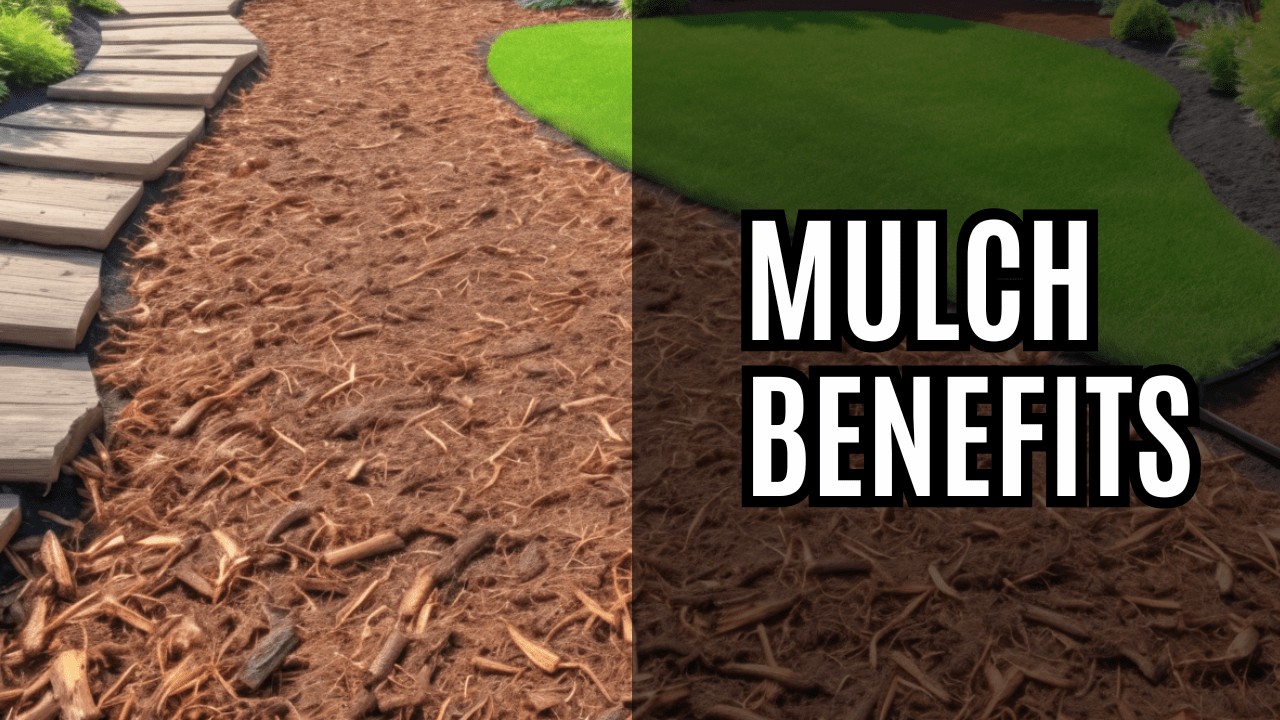Mulch is often thought of as a decorative element for flower beds to enhance the visual appeal of a home or as a component of the Back to Eden gardening approach. However, the truth is that mulch offers remarkable advantages for all types of gardens. It’s time to delve into the essence of mulch and explore its numerous positive impacts on garden health and productivity.
Table of Contents
Exploring the Advantages and Applications of Mulch in Your Garden Calgary Edition
Defining Mulch: Mulch is a protective cover placed over the soil, available in various forms, each offering unique benefits to both vegetable plots and ornamental gardens.
Diverse Varieties of Mulch: Mulch varieties are extensive, yet they primarily fall into two groups: organic and inorganic.
Organic Mulches: Composed of either living or once-living materials, organic mulches integrate into the soil, enhancing its structure and fertility.
Renowned organic mulches encompass:
- Wood-Based Mulches: Such as pine bark, hardwood shavings, wood chips, and aromatic cedar.
Additional organic mulch options include:
- Leaf Mold
- Pine Straw: Comprising desiccated pine needles
- Grass Clippings
- Agricultural Hay or Straw
- Bark
Inorganic Mulches Explained: Inorganic mulches consist of non-biodegradable materials that remain unchanged over time, unlike their organic counterparts.
While they don’t contribute to soil nutrition, they fulfill various other roles within the garden ecosystem.
Prominent inorganic mulches encompass:
- Rubber Mulch: A recycled option for long-lasting coverage
- Landscape Fabric: A permeable barrier for weed control
- Rocks/Stones/Gravel: Natural elements for aesthetic ground cover
- Black Plastic Sheeting: A durable cover for moisture preservation
7 Advantages of Applying Mulch in Your Garden in Calgary
Mulch is a garden’s best friend, offering a multitude of benefits for both vegetable patches and ornamental flower beds.
- Soil Fertility Enhancement: Organic mulch decomposes over time, enriching the soil with valuable organic matter. This decomposition process attracts a host of beneficial organisms, such as insects and worms, which further improve soil quality.
- Disease Deterrence: A robust layer of mulch minimizes soil and water splashback onto plant foliage, which is a common vector for the transmission of fungal and bacterial diseases.
- Moisture Conservation: By covering the garden, mulch significantly reduces water evaporation from the soil, ensuring that moisture remains longer to nourish plant roots. This is particularly beneficial for sandy soils, which are prone to rapid drying.
- Erosion Prevention: Mulch acts as a shield against the forces of nature, securing the soil during conditions of strong winds, torrential rains, and even hailstorms. It helps to reduce water runoff in clay soils and keeps sandy soils intact.
- Weed Suppression: For those who prefer not to engage in the tedious task of weeding, mulch is an effective solution. It forms a natural blockade against sunlight, hindering weed seeds from sprouting, thus leading to significantly fewer weeds.
- Extended Growing Period: Mulch has the ability to retain warmth during the colder months, effectively extending the growing season by insulating the soil surface.
- Thermal Control for Soil: Mulch provides a cooling effect on the soil during the intense heat of summer. It covers the soil’s surface, acting as a natural insulator to maintain consistent soil temperatures.
Strategic Mulching Insights
Maximize the Benefits of Your Mulch in Calgary to Eradicate weeds prior to mulching either by smothering them under a tarp or by manual removal.
It’s also crucial to moisten the soil well before applying mulch to kick-start its moisture-preserving qualities.
Selecting the Ideal Mulch: Align your mulch choice with your gardening objectives.
For soil enhancement, opt for an organic mulch. For low-maintenance gardening without soil enrichment these are best suited for Calgary, inorganic mulch is suitable. Keep it clear of organic debris to prevent weed growth. When it comes to wood mulch, avoid fresh wood to prevent soil acidification and nitrogen depletion. It’s not advisable for nitrogen-hungry crops like tomatoes, peppers, squash, and corn, as it competes for nitrogen during decomposition. Steer clear of bark or large-branch mulch due to their prolonged breakdown time and extended nitrogen immobilization.
Sourcing Organic Mulches with Care: Be wary of leaves from treated suburban lawns and opt for organic straw to avoid introducing weed seeds. For hay, select organic or unsprayed varieties and consider using year-old hay to ensure weed seeds are non-viable. Be mindful of herbicides like Grazon in hay, which persist and affect compost. Inquire about the farmer’s practices and field treatments to avoid such herbicides.
Appropriate Mulch Depth: For coarse mulch, a layer of 4-6 inches is ideal. For fine mulch, apply a thinner layer of 2-3 inches to prevent water and light obstruction, which could harm plant health.
Video Credits
The video clips have been incorporated under Creative Commons licenses:
- “Garden Wonders” by GardenVids (CC BY)
- “Floral Bloom” by FlowerFootage (CC BY)
- “Mulching Techniques” by GreenThumbPro (CC BY)
- “Harvesting Joy” by HarvestHub (CC BY)
We acknowledge and thank the creators for their contributions to the gardening community and for allowing the use of their work.




